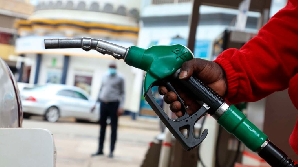The International Monetary Fund (IMF) has hit out at Kenya over the re-introduction of the fuel subsidy scheme on grounds that lack of funds to pay oil marketers will lead to distortion of the budget.
The IMF said that the government re-introduced the subsidy despite lack of funds to pay oil marketers with the Treasury yet to pay the firms at least Ksh9 billion ($55.6 million) that has accumulated from last year.
President William Ruto had in 2022 vowed that his administration would not subsidise pump prices, in line with the conditions to access billions of shillings in loans from the Bretton Woods institution.
A litre of petrol and diesel retailed at Ksh217.36 ($1.34) and Ks205.47 ($1.27) respectively in Nairobi in the pump prices announced on October 15 last year as the subsidy prevented prices from shooting to Ksh220.43 ($1.36) and Ksh217.11 ($1.34) respectively.
But the application of the subsidy did not sit well with the IMF, given that its removal was one of the fresh conditions set by the financier as part of a 38-month budget support scheme.
“The lengthy process in forming the taskforce and the publication of its decision (review of fuel pricing to ensure decisions are aligned to available funds) resulted in a delayed implementation of the structural benchmark," IMF said.
“This reflects the need for internal consultation on how to finance recent domestic price decisions on October 15 and November 15 which resulted in limited but unbudgeted fuel subsidies (about 0.1 percent of GDP over the two price cycles).”
Removal of the subsidy in May last year sent pump prices to then record highs of Ksh182.70 ($1.13) and Ksh168.40 ($1.04) per litre of super petrol and diesel respectively.
Prices then crossed the Ksh200-mark later in the year on a combination of the removal of the subsidy and the doubling of Value Added Tax (VAT) on petroleum products to 16 percent, forcing Dr Ruto’ administration to reinstate the subsidy.
Africa Business News of Wednesday, 24 January 2024
Source: theeastafrican.co.ke













